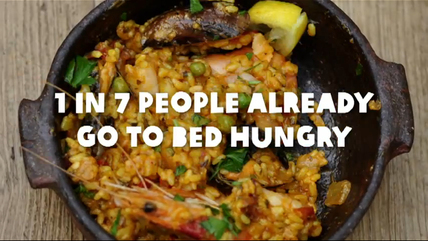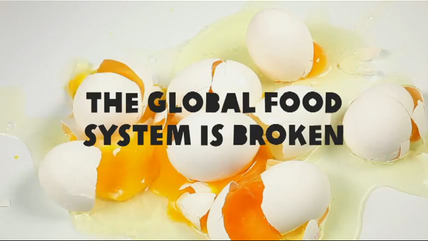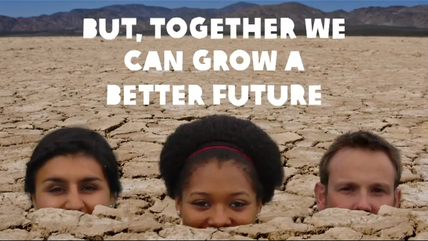GROW Facts
As if it is the most normal thing in the world, you walk into a supermarket and buy several affordable products from all over the world and from all seasons. One product looks even better than the next. But where do all these products come from? How are they produced? And what should you pay attention to when you buy something?

Fair food distribution worldwide
When you buy a pack of cookies in the store, the ingredients in the cookies have already travelled a long way. A gigantic number of products is being produced, traded, processed, and shipped worldwide every day. Small farmers, plantation owners, factory owners, stores, and traders all have to earn a living from these products. But also big corporations with a lot of power have financial interests.
Food (un)certainty. We, the consumers, often do not know how the products that we buy are being produced or what ingredients they contain. Small farmers produce most of our food supply, but they have few rights and receive little pay. People used to be able to grow their own food, but big corporations have disrupted the balance—frequently with the support of governments. Our food supply is, therefore, maintained by the food uncertainty of small farmers.

Soy and palm oil
Soy oil and palm oil belong to the most widely used vegetable oils. More than half of the pre-packaged foods that are available at the supermarket contain these oils! Soy and palm oil are produced in large quantities, which causes many problems. Rain forests are being cut down to grow plantations, and stealing land is still a common practice. To eradicate these problems, Round Tables for soy and palm oil have been founded.
Round Tables: In the Round Tables, producers, stores, factory owners and NGOs (charities) collaborate to make production sustainable. They give certificates to corporations that make a difference. Those companies are allowed to call their products ‘sustainable.’ In The Netherlands, companies want to limit use to socially and environmentally responsible palm oil and soy! One concern, however, is that regular check-ups need to be conducted on the companies that received a certificate from the Round Tables.

Take action!
Fortunately, you can take action against the unequal distribution of food! What can you do?
Vote with your shopping basket: Corporations want you to buy their products. If you let them know that you prefer to buy sustainable products, they will listen to you. The client is king!
Do not throw out food: In The Netherlands, oneadult typically throws out 50 kilos of food a year. It is a waste of food and money! Be mindful with your food.
Eat less meat: Sausages, hamburgers, hot dogs … they are delicious but not environmentally sustainable. Farm-animal food is frequently made of soy. To grow soy, an immense number of rain forests are cut down, and small farmers lose their land. Besides, you need 5 kilo of vegetable food (soy, farm-animal food) to produce 1 kilo of meat.
Campaign Show your standpoint! Most people are unfamiliar with the problems surrounding food production. You could spread the knowledge that you now have to other people and encourage them to take action! You could also try to pressure governments or large corporations to support environmental sustainability. Together we are strong! Join the worldwide Oxfam Novib’s GROW Campaign with Clips for GROW!
Big Corporations
In Brazil, for instance, 1% of the landowners own 50% of the land. As a result, almost 5 million farm families do not own any land. In addition, big plantations destruct the natural environment.
A block
block
Foof (Un)certainty
We can speak of food certainty, when all inhabitants of a particular country have access—at all times—to enough safe and nutritious food to live active and healthy lives.